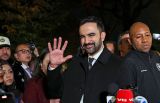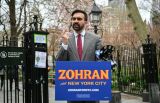An event featuring Milo Yiannopoulos and Martin Shkreli at the University of California - Davis has been canceled. This came after it sparked protests on Friday night.
The Los Angeles Times reported that protesters were shouting and became rowdy before the event. Police at the university had to place barricades and the event sponsor, the UC Davis College Republicans, opted to cancel the talk.
Campus police have confirmed, though, that no violence or property destruction happened. There have been no arrests made as well.
Milo Yiannopoulos is a conservative commentator who writes for Breitbart.com. He has been permanently banned from Twitter after he blasted "Ghostbusters" actress Leslie Jones on the social media site, which resulted to a harassment campaign.
Ralph Hexter, the school's interim chancellor, expressed his disappointment over the protests and the subsequent cancellation. He said that the university's community is based on respecting and listening to all views; even those which they "personally find repellant."
According to NBC News, Martin Shkreli admitted that he was there to have a debate with Yiannopoulos. He also deemed the cancellation of the event as "reasonable."
Shkreli used to work as the head of Turing Pharmaceuticals last year. He stepped down after he was charged with securities fraud. He was sharply criticized after increasing the price of a powerful drug used to treat a life-threatening parasitic infection.
Protesters had carried signs with words like "Fascism, Hate & Bigotry Will Not Be Tolerated." Shkreli was ushered out of the area after a protester went near him and blew a whistle.
Last year, DePaul University gained criticisms for refusing to let security remove protesters who rushed onstage and derailed an event featuring Breitbart Tech editor Milo Yiannopoulos. The school has also been blasted for its "free speech tax."
DePaul University faced backlash for charging political student groups with fees for hosting discussion and lecture events. It has been referred to as "free speech tax," which is the unusual amount of money that the school has subjected student organizations during the planning of said events.
© 2025 University Herald, All rights reserved. Do not reproduce without permission.








